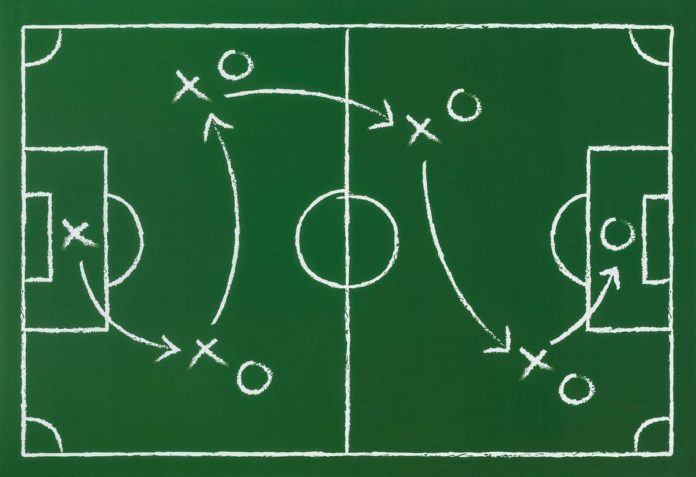The world of football is constantly evolving and, as we approach the latter stages of the 2023 Champions League, the tactics and strategies of the continent’s top coaches are more important than ever.
While some may rely on a traditional approach, others like to push the boundaries of existing coaching, looking for that extra edge to get them all the way to the final.
FootTheBall assesses which coaches have got in them to win the UCL this year or the future editions of the competition – who are likely to do to get their hands on the famous silverware. From bold formations to intricate set pieces, here’s a round-up of what to look out for.
Pep Guardiola
The best coaches impose a strategy blueprint across all club teams so that all coaches and youth players are prepared if they have to step up to a senior role. Trying out new tactical ideas in youth teams is also a low-risk way of seeing what works and what doesn’t: something card players might do when playing free blackjack ahead of placing money down on the real thing.
Pep Guardiola is the master of this club-wide ethos, with youth players like Rico Lewis coming through as an oven-ready replacement for the outgoing Cancelo this season. The local youngster has made his mark in a system where full-backs are essential and an eye for a quick pass a must.
The team are also riding the crest of a goal-laden wave after putting seven past RB Leipzig in the round of 16 and 3 past Bayern Munich. The red-hot form of Erling Haaland almost makes Guardiola’s tactics irrelevant if City can find a way to get the ball to their prolific Norwegian forward enough.
With Manchester City's unbeaten run for the last 20 games in all competitions, this could be coming 🥶😬#MCFC #RealMadrid #Haaland pic.twitter.com/BTbdG3XJz4
— FootTheBall FC (@FootTheBallFC) May 7, 2023
Luciano Spalletti
Napoli have broken the stereotype of Italian teams grinding out 1-0 wins during his tenure. While still having a rock-solid defence, Spalletti’s men had scored 60 goals by mid-March, only nine fewer than Milan won the Serie A with last season.
They’ve continued this form in Europe too, scoring an average of just over three goals a game, including a six-goal demolition of Ajax. Much of this is down to Spalletti’s high pressing and tendency to use the width of the pitch to create space and stretch the opposition’s defence. This is often achieved through overlapping runs from full-backs and wingers, creating overloads, and allowing the team to create goal-scoring opportunities.
Although they lost out to Serie A rivals AC Milan in the quarters, there is belief that they will be back stronger next year. Coupled with their defensive organization, Napoli will be a formidable opponent for anyone in Europe next season, and we may see Spalletti deliver them their first-ever European title – after their first Scudetto in 33 years.
Carlo Ancelotti
Carlo Ancelotti has been there and done that. A seven-time European Cup winner (five Champions Leagues as manager), he knows exactly what it takes to get his hands on the famous trophy, as he did with Madrid last season.
This time around, he’s once again relying on his old guard to deliver Madrid’s decimoquinta (15th) victory. It will mean playing with Ancelotti’s normal balanced formation with a solid defensive structure and an attacking mindset, maintaining stability while also creating opportunities to score goals.
Also, look out for Madrid’s set-piece play: Ancelotti strongly emphasises set-piece play, both in attack and defence. He believes that set pieces are a key area of the game that can often make a difference in close matches – and it might be the only trick to get past a rampant Manchester City.
Roger Schmidt
Perhaps a rather surprising inclusion on this list, but the way Roger Schmidt has Benfica playing this season means it wouldn’t be a huge shock to see them lift the Champions League in the near future, despite their elimination against Inter Milan.
The Portuguese smashed seven past Club Brugge in the first knock-out stage in a reflection of their stunning league form which has them as runaway leaders. Central to Schmidt’s philosophy is an aggressive attacking ethos, where he encourages his players to make runs in behind the opposition’s defence and play with speed and intensity.
On top of this, his Benfica side like to use advanced wing play, using the width of the pitch to create space and attacking moves. If Benfica somehow do the unthinkable and lift the trophy in the future, it will be all thanks to Schmidt’s bold attacking approach.




